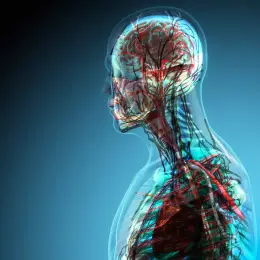
A physiology course typically focuses on the study of the functions and mechanisms that work within a living system. It delves into how organisms, organ systems, organs, cells, and bio-molecules carry out the chemical and physical functions in a living system.
Here's a general overview of what you might expect in a physiology course:
Course Outline
1. Introduction to Physiology
- Definition and scope of physiology
- Historical development of physiology
- Levels of organization in living systems
2. Cell Physiology
- Cellular structure and function
- Membrane transport
- Cellular communication and signaling
- Energy production and metabolism
3. Neurophysiology
- Structure and function of the nervous system
- Neuronal communication
- Sensory and motor systems
- Central and peripheral nervous systems
4. Cardiovascular Physiology
- Heart structure and function
- Blood vessels and circulation
- Cardiac output and regulation
- Blood pressure and regulation
5. Respiratory Physiology
- Pulmonary structure and function
- Mechanics of breathing
- Gas exchange and transport
- Regulation of respiration
6.Renal (Kidney) Physiology
- Kidney structure and function
- Glomerular filtration and renal blood flow
- Urine concentration and dilution
- Acid-base balance and electrolyte regulation
7. Endocrine Physiology
- Endocrine glands and hormones
- Hormone synthesis, secretion, and action
- Regulation of metabolism, growth, and development
- Endocrine disorders
8. Digestive System Physiology
- Structure and function of the digestive system
- Digestive processes and regulation
- Nutrient absorption and metabolism
- Gastrointestinal hormones
9. Muscle Physiology
- Muscle types and structure
- Muscle contraction and relaxation
- Energy metabolism in muscle
- Neuromuscular junction and motor control
10. Integumentary System Physiology
- Structure and function of the skin
- Thermoregulation
- Protection and sensation
11. Reproductive System Physiology
- Male and female reproductive anatomy
- Gametogenesis and fertilization
- Pregnancy and lactation
- Hormonal regulation of reproduction
12. Homeostasis and Regulation
- Principles of homeostasis
- Regulatory mechanisms and feedback systems
- Physiological adaptations and stress responses
Teaching Methods
- Lectures: Covering the theoretical aspects of each topic.
- Laboratory Sessions: Practical experiments to understand physiological processes, often involving experiments on live animals, tissue samples, or using physiological recording equipment.
- Tutorials and Discussions: Small group sessions for deeper exploration of specific topics, problem-solving, and case studies.
- Online Resources: Access to online platforms, e-books, and video lectures for self-study and revision.
Assessment Methods
- Examinations: Midterm and final exams covering theoretical knowledge.
- Practical Assessments: Evaluating skills in the laboratory and data analysis.
- Assignments and Projects: Research projects, essays, or presentations on selected topics.
Textbooks and References
- "Guyton and Hall Textbook of Medical Physiology" by John E. Hall
- "Vander's Human Physiology" by Eric P., Hershel Raff, and Kevin T. Strang
- "Human Physiology: An Integrated Approach" by Dee
Conclusion
Physiology is a vast and diverse field that integrates knowledge from various disciplines like biology, chemistry, physics, and medicine. A well-structured physiology course provides students with a comprehensive understanding of the complex mechanisms that govern the functioning of living organisms.
